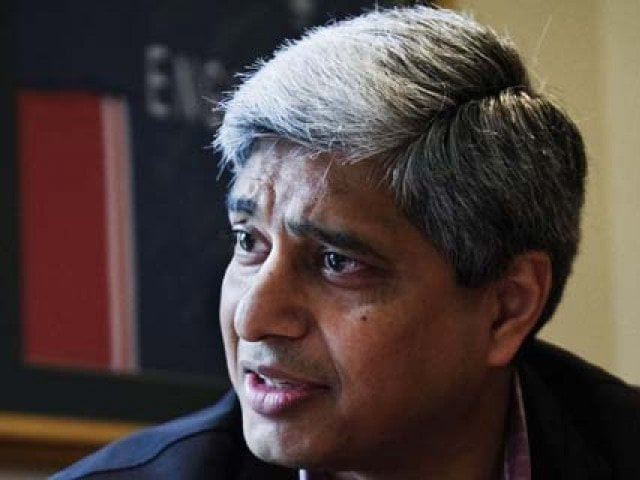Entire Kashmir belongs to India: Vikas Swarup
India raises concerns over Pakistan's attempt to convert Gilgit-Baltistan into a separate province

PHOTO: AFP
"We have seen recent media reports stating that various options are under consideration in Pakistan regarding the political status of Gilgit-Baltistan. India's position is crystal clear on this. The entire state of Jammu and Kashmir which includes areas currently under Pakistan's occupation is an integral part of Union of India," External Affairs Ministry Spokesperson Vikas Swarup said, according to NDTV.
Gilgit-Baltistan — part of Pakistan by choice
Pakistan is mulling upgrading the constitutional status of its northern Gilgit-Baltistan region, which is also claimed by India, in a bid to provide legal cover to a multi-billion-dollar Chinese investment plan, officials said last week.
The move could signal a historic shift in Pakistan’s position on the future of the wider Kashmir region, observers have said, dealing another potential blow to fragile peace talk efforts that received a boost after India’s Prime Minister Narendra Modi visited Lahore in December.
Swarup said that India's concerns are regarding “exploitation of resources”, while adding that the implementation of economic projects in AJK are well known and have been shared with all countries and organisations concerned.
Foreign secretaries meeting: Islamabad, New Delhi reschedule talks
Pakistan's Foreign Office spokesperson in June, last year rejected India’s statement claiming the entire Jammu and Kashmir, including Gilgit and Baltistan, are an integral part of India, saying the country is unlawfully occupying territories in the region.
“Kashmir is an internationally recognised dispute, pending final settlement through a free and impartial plebiscite under the UN auspices, as enshrined in numerous UN Resolutions,” Khalilullah said.
“Under these resolutions no material change is allowed, yet India, in complete violation of these resolutions, calls it a state of the union,” he added.
Kashmir is an unfinished agenda of partition: Army chief
Addressing India slamming Gilgit-Baltistan polls held on June 8, the Foreign Office spokesperson termed it an “interference in the internal affairs of Pakistan.”
India said the G-B elections were “an attempt by Pakistan to camouflage its forcible and illegal occupation of the regions.”
However, Khalilullah responded, “It is actually India which is unlawfully occupying the territories of Jammu and Kashmir.”
This article originally appeared on NDTV.



















COMMENTS
Comments are moderated and generally will be posted if they are on-topic and not abusive.
For more information, please see our Comments FAQ